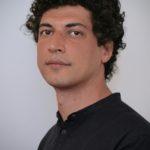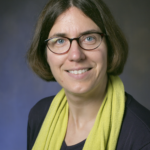2022 Regions in Recovery Plenary Speakers
All times below in GMT (until 27th March 2022) and British Summer time (BST – after 27th March 2022). Check your own time zone here. Receive all the latest updates by following #RinR22 on Twitter. Click here to view the Regions in Recovery 2022 Global E-Festival webpage.
Monday 21st March 2022, 14:00-15:30 GMT
Welcome to the E-Festival
Opening Plenary Panel: The Russia-China Interface: One Border, Two Regions
China and Russia share one of the longest borders in the world as well as one of the most unusual. Unlike most international borders that slice across an ethnic and cultural continuum, the Russia-China border represents a civilizational fracture, with entirely different populations on either side. These differences are sustained and further compounded by scholarly and disciplinary traditions that study China and Russia separately, with very little focus on their common border. In our recent book, as well as through the book series we edit, we have sought to challenge this division and attempt to treat Northeast Asia as a single region with its own characteristics and challenges. Using insights from our recent fieldwork, we describe in this lecture some of the current dynamics seen at the border. If people at the border consistently describe themselves as living “on the edge” of the state, emerging collaborative, commercial, and mimetic processes increasingly tie the two sides together in ways that are not always consonant with metropolitan view nor visible in macro analyses.

Franck Billé is a cultural anthropologist/geographer based at the University of California, Berkeley, where he is program director for the Tang Center for Silk Road Studies. He is the author of Sinophobia (Hawaii, 2015), coauthor of On the Edge (Harvard, 2021), editor of Voluminous States (Duke, 2020), and coeditor of Yellow Perils (Hawaii, 2019) and Frontier Encounters (Open Book, 2012). He is currently finalizing his latest book, Somatic States: On Cartography, Geobodies, Bodily Integrity (Duke University Press). More information about his current research is available on his website: www.franckbille.com.

Caroline Humphrey, FBA, is an anthropologist who has worked in Russia, Mongolia, China (Inner Mongolia and Heilongjiang), India, Nepal and Ukraine. She has researched a wide range of themes including Soviet and post-Soviet provincial economy and society; Buryat and Daur shamanism; Jain religion and ritual; trade and barter in Nepal; environment and the pastoral economy in Mongolia; and the history and contemporary situation of Buddhism, especially in Inner Mongolia. She has written on inequality and exclusion; the politics of memory; naming practices; ethics and conceptions of freedom. Recent research has concerned urban transformations in post-Socialist cities (Buryatia; Uzbekistan, Ukraine). Currently she is developing a research project on socio-political interactions on the Russian–Mongolian–Chinese border.
Caroline Humphrey’s PhD (1973) from the University of Cambridge was on ‘Magical Drawings in the Religions of the Buryats’, supervised by Edmund Leach. Since 1978 she has held appointments in the Department of Social Anthropology (Cambridge). Together with Urgunge Onon she founded the Mongolia and Inner Asia Studies Unit (MIASU) in 1986. She retired from her post as Sigrid Rausing Professor of Collaborative Anthropology, University of Cambridge in October 2010 and became Director of MIASU.

Alexander B. Murphy is Professor Emeritus of Geography at the University of Oregon (phased retirement, 2019-2024), where he held the James F. and Shirley K. Rippey Chair in Liberal Arts and Sciences from 1998-2019. He specializes in political, cultural, and environmental geography, with regional emphases in Europe and the Middle East. He was elected to membership in the Academia Europaea in 2014, he is a Past President of the Association of American Geographers, and he is currently Senior Vice President of the American Geographical Society. He co-edited Progress in Human Geography for eleven years, and Eurasian Geography and Economics for eight years. In the late 1990s he led the effort to add geography to the College Board’s Advanced Placement Program. In the early 2000s he chaired the National Academy of Sciences — National Research Council Committee charged with identifying “Strategic Directions for the Geographical Sciences.” Alec Murphy is the author of more than 100 articles and several books, including The Regional Dynamics of Language Differentiation in Belgium (University of Chicago, 1988), Cultural Encounters with the Environment (edited with Douglas Johnson; Rowman & Littlefield, 2000), Geography: Why It Matters (Polity Press, 2018), Human Geography: People, Place, and Culture 12th ed. (with Erin Fouberg; Wiley, 2020), and The European Culture Area, 7th ed. (with Terry Jordan-Bychkov and Bella Bychkova Jordan; Rowman & Littlefield, 2020). He is the recipient of numerous grants and awards, including a Fulbright-Hays Research Grant in 1985, a National Endowment for the Humanities Fellowship in 1991, a National Science Foundation Presidential Young Investigator Award in the mid-1990s, a National Council for Geographic Education Distinguished Teaching Award in 2001, Gilbert Grosvenor Honors for Geographic Education from the Association of American Geographers in 2008, a Queen Mary (University of London) Distinguished Visiting Fellowship in 2009, a Rockefeller Foundation Bellagio Center Residency Fellowship in 2011, a University of Oregon Thomas Herman Distinguished Teaching Award in 2012, and the Association of American Geographers’ Lifetime Achievement Award in 2014. He holds a bachelors degree in archaeology from Yale University, a law degree from the Columbia University School of Law, and a Ph.D. in geography from the University of Chicago.
Wednesday 23rd March 2022, 11:00-12:15 GMT
Early Career Plenary Panel I: Regions in Recovery: The Spatial Politics of Planning for Climate Action
Friends With Benefits: The Emergence of the Amsterdam–Rotterdam–Antwerp (ARA) Polycentric Port Region (Karel van den Berghe):
This paper enacts a dialogue between planning literature on polycentric urban regions (PUR) and port geography literature on multi-port gateways. This helps urban studies to overcome some analytical challenges in measuring functional relations, vice versa it helps port geography to go beyond seeing ports as the prime individual agents in maritime geography, but mere as nodes within multilevel corporate networks. The main proposition is that polycentric systems are the emergent outcome of the interactions between three dimensions of polycentricity: morphological, functional and institutional. We argue that a polycentric system can only emerge when its three constituting dimensions are reciprocally coupled. If so, a polycentric system emerges as a higher level property, having the generative capacity to modify its constituents, or its dimensions. The focus is on the Dutch-Belgian Amsterdam-Rotterdam-Antwerp (“ARA”) port-industrial region: the world’s second largest concentrations of oil refining and petrochemical activity. The central question is to what extent is the ARA region a polycentric system and what explains this observed polycentricity? We focus on the ARA region, because on international commodity exchange markets, such as Nymex, the ARA contract sets the global price for oil and oil products. Particular is that the ARA contract includes the option to unload or load products in any-port in the ARA region, if for example a traffic jam occurs. The ARA contract in itself thus, hints for functional polycentricity. Methodologically, we developed a new mapping algorithm,, using AIS ship positioning data. We were able to determine out of this AIS data, a classification based on the quantity of oil they transport. The advantage of this, in comparison with urban studies wherein knowledge functional relations are studied by using proxies such as commuting data, we could ‘follow the oil’, or thus map the product space of oil. Our analyses demonstrate a high-degree of morphological and functional polycentricity with each of the constituent (firms located in) ports connected through flows and specialization in processing and trading oil (products). However, as we explain, this is not the intended result of formalized spatial planning, nor did ARA ever became a frame of reference among planning agencies. Rather it is the result of self-organization in the oil industry that has culminated in the emergence of ARA as an internationally recognized spot market, later institutionally formalized in delivery contracts (oil futures) traded on international commodity exchanges, our initial research starting point. We conclude that polycentric systems could be understood as emergent systems that obtained generative capacities, in turn influencing its different constituting dimensions. Next, although we are moving towards a post-fossil world, our insights are nonetheless relevant for ongoing and accelerating transitions, such as hydrogen, and the circular and/or biobased economy. It is most likely that these new economies will land for at least their production and logistical processing in the ARA region. To what extent it also will emerge as a functional polycentric network, is subject of future research.
For an Urban Politics of Looking Elsewhere: Climate Action in Rapidly Growing Chinese Cities (Linda Westman)
Urban areas mediate climate transformations and generate new forms of climate urbanism. Looking at climate action in the twelve fastest growing cities in China with under one million people, this paper proposes a perspective on urban climate politics ‘from elsewhere’ that foregrounds the potential role of smaller urban areas in mediating climate transformations. The initiatives analysed cluster in three groups, as they deliver practical, institutional, or cultural changes. They point towards heterogeneous forms of climate urbanism that engage with both national demands and the possibilities of each urban context, relying on distributed forms of agency to create deeper transformations.
Keywords: ordinary cities, climate change, experimentation, China, rapid urbanization

Karel Van den Berghe is Assistant Professor in Spatial and Urban Planning and Economics at the department of Management in the Built Environment, Faculty of Architecture and the Built Environment, Delft University of Technology (The Netherlands). He holds a master in Geography, a master in Spatial Planning, and published his PhD in Spatial Planning on the topic of Planning the Port City. His current research and education focusses on the spatial policy making and the (geo)strategic challenges of the circular economy, the role of (re)manufacturing industries, port cities, polycentric urban and port systems, and policy coherence. He has published widely in international and national academic and professional journals, books and book chapters on these topics. Lastly, he is an advisory expert for different port authorities, municipalities, regions and national spatial policy making institutions.

Linda is a Research Associate at the Urban Institute. Her work engages with environmental politics, including dimensions such as urban climate governance, transformations, and justice. Linda’s research is situated within the UIs climate urbanism theme. She currently manages a work package of the ERC-funded project LO-ACT (https://www.loactproject.com/), which examines climate innovation in ordinary cities. Linda is chapter scientist and contributing author of Chapter 6 of the IPCC Assessment Report 6. She is also co-founder of the Urban Working Group of the Earth System Governance network. Before joining the UI, Linda was based at the University of Waterloo in Canada, where she conducted research on sustainable business innovation. Prior to her academic work, Linda was employed as senior policy analyst at the Science and Innovation Office of the Embassy of Sweden in Beijing.

Stefania is a multidisciplinary researcher and teaching fellow in planning and economic development, with working experience in international consultancies. She is a Senior Teaching Associate in Planning Growth and Urban Regeneration in the Department of Land Economy, University of Cambridge and a Visiting Lecturer at The Bartlett School of Planning, University College London. Her PhD in Planning from the Bartlett School of Planning (UCL) has investigated the new geography of innovation in Italy, including the underlining socio-economic dynamics and the governance implications of the new workspaces (e.g. co-working spaces, maker spaces, start-up incubators) and entrepreneurial ecosystems. Her current research interest focusses on ways to reconcile planning practices and local economic development for more inclusive and resilient regeneration strategies.
Monday 28th March, 11:00-13:00 BST
EU Plenary:
The 8th Cohesion Report: How have regional disparities in the EU changed and what does it mean?
Very recently, the European Commission published the 8th Report on Economic, Social and Territorial Cohesion, presenting a first picture of the impact of the coronavirus pandemic at the regional level in the EU. The report also shows both positive and negative trends in EU regions, cities and rural areas. It assessed economic, social and territorial cohesion in the EU and showed that less developed regions have been catching up, but that many transition regions have been stuck in a development trap. Furthermore, the growing innovation divide will make it harder for both types of region to catch up. At the EU level, employment rates are now higher than before the economic crisis in 2008, but regional disparities are still above their pre-crisis level. Demographic change will affect all regions in the coming decades. Regions will have to adjust to a shrinking labour force and student body and a growing population that is aged 65 and over.
The report also highlights that the green and digital transitions will be key drivers of EU growth, but argues that, without appropriate policy action, new economic, social and territorial disparities may appear. Finally, it launches a reflection on how cohesion policy should evolve to respond to these challenges.
This session will present the main findings of the report, and aims at engaging in a lively discussion with conference participants on future challenges for Cohesion Policy in the years to come.

Lewis Dijkstra is the Head of the Economic Analysis Sector of the Directorate-General for Regional and Urban Policy in the European Commission. He is the editor the Cohesion Report, which analyses economic, social and environmental issues in EU regions and cities. He is also a visiting professor at the London School of Economics.
He works closely with the OECD, the UN, the World Bank, the European Environmental Agency, the Joint Research Centre and Eurostat.
His recent work covers topics such as a global definition of cities and rural areas, measuring transport performance, the geography of EU discontent, quality of government and gender equality.
He holds a PhD in Urban and Regional Planning from Rutgers University, New Jersey, an MSc in Urban and Regional Planning from the London School of Economics and Political Science and a BA in Political Science from the University of Ghent, Belgium.

Julia Bachtrögler-Unger is an Economist at WIFO and has been working in the Research Group “Structural Change and Regional Development” since 2018. Her research focuses on issues of regional and urban economics, in particular the analysis of economic policy measures in the regional context, regional development and convergence. In these areas she is currently working as a project leader and collaborator in national and international projects. Her current research activities include the analysis of EU cohesion policy at the micro and small-scale level. From 2014 to 2018, Julia taught and worked as a research assistant and PhD student at the Vienna University of Economics and Business. She also gained experience in two OECD projects and was a guest researcher at Politecnico di Milano. Her work has been published in journals such as Regional Studies, and she has been giving presentations at numerous conferences and workshops. For her dissertation, she was awarded the Stephan Koren Award, the Hanns Abele Prize and the FIW Award for outstanding dissertations in 2019.

Professor John Bachtler is Professor of European Policy Studies and a Director of the European Policies Research Centre. His research experience is principally in regional and industrial development in Europe, encompassing the economic development policies of the EU Member States and several other European countries, the structural and cohesion policies of the European Union, EU integration and enlargement.
Tuesday 29th March 2022, 14:00-15:15 BST
Early Career Plenary Panel II: Promoting Environmental Justice, Gender Equality and Wellbeing
Regional Recovery Through Wellbeing (Robert Bowen):
The aim of this paper is to critically evaluate the value of a wellbeing approach to regional development as a means of supporting the post-Covid-19 recovery. The Covid-19 pandemic has been the catalyst for profound changes, with the introduction of lockdowns and health measures affecting the way in which businesses and people operate, which in turn has impacted the local economy, changing people’s habits, attitudes towards spending money, and re-evaluating where they want to live and work. The pandemic has coinciding with events such as COP26, Brexit, or strained global supply chains, to influence a renewed understanding of the need for better health, resilience, sustainability, cultural diversity and inclusive regional development. Indeed, the scale of change brought about by the pandemic represents an opportunity to enact positive changes in these areas in the post-Covid-19 recovery. As the world recovers from the impacts of Covid-19, regions could re-evaluate local development and consider how well-being could support sustainable economic development, offering a new perspective aimed at more place-specific attributes and purposeful ecosystems. Therefore, this research aims to explore how different places can use the principles of well-being to support regional economic development.
Well-being is increasingly recognised as an important aspect in the ways in which local economies function. This is especially pertinent with a greater emphasis placed on social and environmental sustainability. General definitions of well-being point to the state of being comfortable, healthy and happy, and some countries, such as Iceland and New Zealand, look to well-being as a preferred measure of economic prosperity compared to growth, as it takes a more holistic perspective. The increasing importance of well-being is also being seen in legislation in some countries, such as Wales, where the Well-being of Future Generations Act (2015) is hailed as a unique piece of legislation. It establishes 7 goals at the heart of decision-making across Welsh life, with the aim of developing long-term well-being in Wales. These goals include prosperity, resilience, equality, health, cohesive communities, vibrant culture and Welsh language, and global responsibility.
This paper builds on the author’s research to date to draw understandings of regional development issues from the UK, France, Malaysia and Colombia, as well as focussing specifically on ongoing research looking at a case study of regional development based on well-being in the Swansea Bay city region in west Wales, UK. This approach aims to promote regional development through a common social purpose, engaging with a variety of stakeholders across the ecosystem, ensuring that local issues can be addressed in a collaborative manner, underpinned by the principles of the Well-being of Future Generations Act. Findings aim to conceptualise a well-being approach to regional development, exploring how a place-based approach could be devised, which could be replicated across many regions. Practical implications would enable SMEs, community groups, and other stakeholders within an ecosystem to explore new perspectives to business prosperity. This is especially pertinent in the post-Covid recovery phase, as businesses could seek to develop greater resilience.
Keywords: Well-being, regional development, Covid-19, recovery, sustainability
Feminization of Surface Temperature: Environmental Justice and Gender Inequality Among Socioeconomic Groups (Bardia Mashhoodi)
The presentation will be on the results of the study on “Feminization of surface temperature: Environmental justice and gender inequality among socioeconomic groups” published in the journal of Urban Climate (https://doi.org/10.1016/j.uclim.2021.101004).
The study seeks answers to whether certain gender groups are overexposed to land surface temperature (LST) and whether or not the levels of such overexposure differ across socioeconomic groups and locations? The results of a geographically weighted regression model on 2400 Dutch residential zones show that LST is feminized. Gender composition alone explains about 10% of LST variations, regardless of other socioeconomic characteristics. For a 1% increase in women’s population in a residential zone, LST increases by more than 0.1 °C. When socioeconomic characteristics are considered, the model explains more than 75% of variations. It shows that women living in low-value and relatively-old buildings are more exposed in 51% and 41% of the zones. Older-than-65-years and high-income women are more exposed than men in 24% and 22% of zones. (In the rest of the zones, almost no significant gender inequality between the socioeconomic groups is observed.) Feminization of LST has a spatial pattern, too. It is more likely to occur in a moderate climate than in areas with extreme cold or warm climates, and indeed in urban areas rather than rural ones.
This study discusses the results and offers a series of possible explanations: Women’s overrepresentation in urbanised areas, gender imbalance in economic sectors, suburbanisation of poverty, unequal access to green, different life expectancy among gender groups, and high variation of LST in moderate climates. Eminently, the observed inequalities are due to the imbalance distribution of women and men across the urban and rural areas. Women outnumber men in the three most urbanised zones of the Netherlands – the so-called “very highly urbanised”, “highly urbanised”, “moderately urbanised” – by 1.39%, 1.93%, 0.66%. Oppositely, in the two least urbanised zones – the so-called “barely urbanised”, “no urbanisation” – men outnumbered women by 0.70% and 2.70%. The gender imbalance between urban and rural areas is presumably related to the gender imbalance across economic sectors. The Gender Data Portal of The World Bank reported that in 2019 the industry sector employed almost 25% of Dutch working men. The corresponding number for Dutch working women was 6%. The percentage of working men with a job in the agricultural sector is two and a half times larger than that of working women (3% compared to 1.2%). The service sector, however, offers a different picture. In 2019, more than 92% of Dutch working women were employed in the service sector. The corresponding percentage of Dutch working men was less than 73%. These presumably explain the overrepresentation of women in the more urbanised zones, thus the overexposure to environmental hazards. The study ends with a series of recommendations on including a gender perspective in policies aiming to face climate change.

Dr Robert Bowen is an International Entrepreneurship academic at the School of Management at Swansea University, and has previously held academic positions at Aberystwyth University and the University of Nantes, France. He also currently holds a position of Visiting Professor at Audencia Business School in Nantes, France. Dr Bowen undertakes research into rural enterprise, regional development, and SME internationalisation, having published in a range of international journals, and presented his research at the Welsh Parliament, House of Lords, and European Commission. He currently holds positions of co-chair of the Rural Enterprise track at the annual ISBE (Institute of Small Business and Entrepreneurship) conference, and Editor of Regions, an online publication of the Regional Studies Associations. He is also a Senior Fellow of the Higher Education Academy.

Bardia Mashhoodi is Assistant Professor of Digital Landscapes and the research coordinator at Landscape Architecture and Spatial Planning Group, Department of Environmental Sciences, Wageningen University and Research (WUR), the Netherlands. His expertise is in geographic analysis and spatial statistics for regional and urban studies. In particular, he is specialized in environmental justice, household energy consumption and energy poverty, spatial optimization of electric vehicles infrastructure, urban heat islands, and mobility network analysis.
Helen Lawton-Smith is Professor of Entrepreneurship, Department of Management, and is Director of the Birkbeck Centre for Innovation Management Research, Birkbeck, University of London. She is an economic geographer and research career has focused on the links between entrepreneurship, innovation, public policy and regional development in national and international contexts. She is the Founder and Research Director of the Oxfordshire Economic Observatory (oeo.geog.ox.ac.uk) and a Visiting Research Fellow at the School of Geography and the Environment, Oxford University. She was the Birkbeck PI in the European Union project ‘Transforming Institutions by Gendering contents and Gaining Equality in Research’ (TRIGGER) (2014-2017).
Wednesday 30th March 2022, 14:00-15:00 BST
OECD Plenary: Remote working and impact on territorial inequalities
The COVID-19 pandemic has accelerated the transition to digitalisation and remote working. With confinement measures, many workers have needed to adapt to remote working, while firms forced to quickly shift activities onto virtual platforms through online services and online ordering, which led to a significant acceleration in the up-take of digitalisation across OECD countries. The medium-and long terms effects of remote working remain uncertain. Yet, remote working will likely stay in a hybrid form with the adoption and acceptance of virtual working methods and social interactions. The capacity to adapt to teleworking is unequal across regions, with large cities hosting the largest share of tele-workable jobs. Yet increasing digitalisation presents new opportunities and indeed challenges, including where workers live and firms locate. This session will discuss the effects of teleworking on territorial inequalities and the impact on regional development in OECD countries, with suburbs, medium size cities and rural areas potentially gaining. It will also debate on policy options that can facilitate the uptake and make the most of teleworking across different territories. Finally, the session aims to discuss how to best leverage the effects of telework to increase regional well-being.

Ilaria Mariotti is Associate Professor of Urban and Regional Economics at DAStU, Politecnico di Milano (IT). She achieved a M.Sc. degree in Regional Studies at the University of Reading (UK), a Ph.D in Economic Geography at the University of Groningen (NL) and a Ph.D in Transport Economics at the Università degli Studi di Genova (IT). She is member of the Urban Planning, Design and Policy Ph.D Programme at Politecnico di Milano. Her main research interest concerns: firm location, industrial districts and clusters; new working spaces and their effects on the users and urban context. She is Chair of the Cost Action 18214 “The Geography of New Working Spaces and the Impact on the Periphery” (2019-2023), and Project coordinator for the Politecnico di Milano team of the CORAL “Exploring the impacts of collaborative workspaces in rural and peripheral areas in the EU” Project, Horizon 2020 – Marie Curie -ITN-2020 (2021-2024). Ilaria is one of the RSA’s current Small Grant Scheme on Pandemics, Cities, Regions & Industry Grant Holders: The growth of remote working during the Covid-19 pandemic and the renewed role of coworking spaces in peripheral areas.

Arjun Ramani is The Economist’s global business & economics correspondent. He has written cover stories on venture capital (“Adventure Capitalism”) and economic policy (“Enter Third Wave Economics”). Before that he worked on an emerging markets trading desk at Citadel. Arjun is also a researcher at the Stanford Institue for Economic Policy Research. His work on the “Donut Effect” of Covid-19 on America’s largest cities has been covered by Bloomberg, The Washington Post and The Economist among other papers. He graduated with honors from Stanford University where he studied economics and computer science and was a Kennedy Prize winner for best undergraduate thesis.

Louise Kempton is a Senior Research Associate in the Centre for Urban and Regional Development Studies (CURDS) at Newcastle University. She is also Associate Dean of Research and Innovation for the university’s faculty of Humanities and Social Sciences. She has more than 25 years’ experience in local, regional and international economic development as a researcher, policy maker and practitioner. Her current focus is contributing through research and policy development to the shaping of an evolving understanding of the role of universities as ‘anchor’ institutions in local/regional economic growth and innovation.

Nadim Ahmad is Deputy Director at the OECD Centre for Entrepreneurship, SMEs, Regions and Cities (CFE), helping to drive momentum in the development of integrated policies that look holistically at people, places and firms, and, in doing so, better policies for better lives, and resilient and sustainable economic growth.
In his role, Mr Ahmad provides intellectual leadership and quality control to ensure that the OECD is at the forefront of policy thinking in the domains covered by CFE. Mr Ahmad joined the OECD in 2000. Before joining CFE in 2020, he worked in the OECD’s Statistics and Data Directorate, where he led international efforts to better account for globalisation, entrepreneurship and business performance, and, in particular, the role of MNEs and SMEs in global value chains, and the OECD’s Directorate for Science Technology and Innovation, where he developed the OECD’s first estimates of carbon dioxide emissions embodied in international trade.
Prior to joining the OECD, Mr Ahmad worked in the UK’s office for National Statistics (1996-2000) and the UK’s Ministry of Finance (1993-1996).
Thursday 31st March 2022, 14:00-16:00 BST
RSA Network on Infrastructural Regionalism Keynote:
100 Years of Infrastructural Regionalism: Exploring the dynamic interaction between infrastructure and regional governance in metropolitan New York
The Network on Infrastructural Regionalism (NOIR) launched with a call for a new research agenda focusing on exploring the intersection between infrastructure and regionalism centered on four interrelated themes: interdisciplinarity; infrastructure and regional governance; seeing like a region; and infrastructure and regional lives. This talk brings the topic of infrastructure governance to the fore examining the synergies between how infrastructure shapes governance structures, and how actors involved in regional governance determine the development of regions. It explores this theme through the lens of the Port Authority of New York and New Jersey (PANYNJ) and the infrastructural development of the New York metropolitan region, based on research from my forthcoming book with Phil Plotch, Mobilizing the Metropolis (University of Michigan Press, Forthcoming 2023). While the PANYNJ is in some ways a unique organization – a vast, well-established, financially self-sustaining, multipurpose, bistate agency – exploring its evolution in parallel with infrastructural sinews that fueled the region’s growth and bound it together reveals some of the tensions inherent in regional governance. Come for the conflict, the fragmentation, the scandal, and the political struggles. Stay for lessons about the importance of coalition building, collaboration, and creativity required to pull off a hundred years of infrastructure innovation, growth, and development!
The session will conclude with contributions by discussants who will offer their own perspectives on the theme of infrastructure and regional governance and stimulate a lively discussion by adding international contexts to complement the New York metropolitan case.

Jen Nelles is a Senior Research Fellow associated with the Innovation Caucus at Oxford Brookes Business School and specializing in the areas of innovation and productivity policy, urban and metropolitan governance, regional economic development, infrastructure, and system dynamics. Her recent books include Comparative Metropolitan Policy: Governing Beyond Boundaries in the Imagined Metropolis (Routledge 2012); A Quiet Evolution: The Emergence of Indigenous-Local Intergovernmental Partnerships in Canada (University of Toronto Press 2016); and Discovering American Regionalism: An Introduction to Regional Intergovernmental Organizations (Routledge 2019). Her most recent book Mobilizing the Metropolis has been accepted at University of Michigan Press (2023). She is an editor for Regional Studies, Regional Science, a co-convenor of the RSA Network on Infrastructural Regionalism (NOIR), and co-director of Project RIGO, a network of scholars studying regional intergovernmental organizations (RIGOs).

Julie Cidell is a Professor of Geography and GIS at the University of Illinois at Urbana-Champaign. She studies how local governments and individual actors matter in struggles over large-scale infrastructure and policy development and the corresponding urban environments that are produced, including airports, railroads, logistics hubs, and freeway protests, as well as green buildings and urban sustainability policies. Her recent books include Imagining Sustainability: Creative Urban Environmental Governance in Chicago and Melbourne (2017) and An Introduction to Transportation Geography: Transport, Mobility, and Place (2021). She is currently editing A Research Agenda for Transport Equity and Justice and is an associate editor for the Journal of Transport Geography and for Mobilities.

John Harrison is an urban and regional geographer at Loughborough University, UK. Over the past 15 years he has published 18 edited collections and over 40 international journal articles exploring the planning and governance of cities and regions. His recent books include Metropolitan Regions, Planning and Governance (2020) and Planning Regional Futures (2022). John has been an editor of Regional Studies since 2013, currently acting as the Urban and Regional Horizons section editor, and is an Associate Director of the Globalization and World Cities (GaWC) research network.

Markus Hesse is a professor of urban studies at the University of Luxembourg’s Department of Geography and Spatial Planning. While his research interests focus on a range of topics in urban development and metropolitan governance, a common thread of this research is concerned with the interplay of spaces and flows. A recent research project studied the emergence of “relational cities” in Europe and South East Asia, namely Geneva (Switzerland), Luxembourg City, and Singapore. A particular research emphasis is placed on the science-policy interface in urban planning and governance.

Jean-Paul Addie is an Associate Professor at the Urban Studies Institute at Georgia State University and a co-convenor of the RSA Network on Infrastructural Regionalism (NOIR). He is a critical urban geographer working on urban and regional governance, urban political economy, and socio-spatial theory, with a specific focus on the politics of infrastructure.
Friday 1st April 2022, 13:00-14:30 BST
Closing Plenary: A New State Capitalism? Debates and Directions
The increased reach and prominence of various forms of state intervention has prompted an academic and policy discourse of the ‘return of the state’ or a renewed state capitalism. The rise of state activism is evident in the large-scale bailouts following the 2008 financial crisis, the profusion of state-owned enterprises and sovereign wealth funds, growing economic nationalism, revival of industrial policy and consolidation of state-led development models (Alami and Dixon 2020). It has been reinforced by the COVID-19 crisis, requiring unprecedented levels of government support to sustain economies during and beyond lock down. This plenary session aims to contextualise, ground and unpack the concept of a new state capitalism across a range of geographical contexts.
* in the event that UCU cancels its strike action for 01.04.2022, Julie MacLeavy will be able to attend.

Julie MacLeavy is an economic geographer, whose research is strongly grounded in the cultural political economy tradition, drawing on adjacent disciplines including sociology and social policy to make an original contribution to academic and public policy debates concerning neoliberalism, austerity and urban regeneration. Julie has developed and consolidated a research profile as an expert on the lived experience of neoliberal austerity and economic change through empirically grounded and critically engaged analysis of labour market restructuring, welfare reform and urban renewal in the UK and North America. Her research has been funded by (amongst others) the ESRC, Royal Geographical Society with the Institute of British Geographers, British Academy and Regional Studies Association and is distinctive in bringing the intersectional dynamics of gender, race and class into consideration of the social, financial, material and institutional impacts of the significant divestment in state sponsored services from the late 1970s. Julie is Professor of Economic Geography at the School of Geographical Sciences, University of Bristol, UK and currently serves as an editor of the journal Geoforum.

Dr. Kean Fan Lim is Senior Lecturer in Economic Geography at Newcastle University. He is primarily interested in how political-economic evolution in East Asia is constituted by proactive state intervention. Over the past decade, Dr. Lim has examined how industrial, social welfare and financial experimental policies were implemented in Chinese city-regions to enhance the Chinese state’s Leninist developmental approach. He has published two books on the Chinese political economy, including one in the Royal Geographical Society-Institute of British Geographers’ international flagship book series, and multiple articles in major journals in human geography, economic sociology, political economy, China studies and East Asian studies. Dr. Lim is currently working on three research projects, namely a) the subnational constituents of Chinese economic statecraft; b) the politics of economic integration in Chinese border regions; and c) the city-regional effects of the EU-China transcontinental railway.

Linda Lobao is Professor at the Ohio State University in Rural Sociology, Sociology, and Geography. Her research focuses on spatial inequality and the impact of state and market changes on socioeconomic well-being across localities. In her recent research, she has been examining local governments across the United States, the range of policies they implement, and how the local state influences the welfare of populations. Lobao is a co-editor of The Cambridge Journal of Regions, Economy, and Society. She is a Fellow of the American Association for the Advancement of Science and a past-president of the Rural Sociological Society.

Adam D. Dixon is Associate Professor of Globalization and Development at Maastricht University. He is the Principal Investigator of the research project Legitimacy, Financialization, and Varieties of Capitalism: Understanding Sovereign Wealth Funds in Europe (SWFsEUROPE) funded by the European Research Council. This project is focused on explaining how sovereign wealth funds are made legitimate as state actors in global and European financial markets, and how these funds are being used to legitimize and facilitate state intervention in economic development in countries across the income spectrum. In addition to his scholarship, Dr. Dixon consulted for or advised a range of international organizations and NGOs, such as the OECD Development Centre, the World Bank, the European Commission, the World Economic Forum, the Center for Global Development, Chatham House, the Wilson Center, and the Pacific Pension & Investment Institute. His books include, The New Frontier Investors: How Pension Funds, Sovereign Funds, and Endowments are Changing the Business of Investment Management and Long-Term Investing (Palgrave Macmillan 2016), The New Geography of Capitalism: Firms, Finance, and Society (Oxford University Press 2014) and Sovereign Wealth Funds: Legitimacy, Governance, and Global Power (Princeton University Press, 2013).

Danny Mackinnon is Professor of Regional Development & Governance and Director of the Centre for Urban and Regional Development Studies (CURDS) at Newcastle University. He is a Fellow of the Regional Studies Association and has a long-standing interest in the institutions and politics of urban and regional development. He is widely published in a range of leading international journals and is the co-author of leading Economic Geography textbook now in its 3rd edition. He was an editor of the leading cross-disciplinary journal Urban Studies 2009-2017. Recent work has focused on the creation of new regional growth paths in renewable energy and on the politics of uneven regional development. He is currently undertaking research on patterns of demographic and socio-economic change in ‘left behind places’ in the UK, Germany and France.